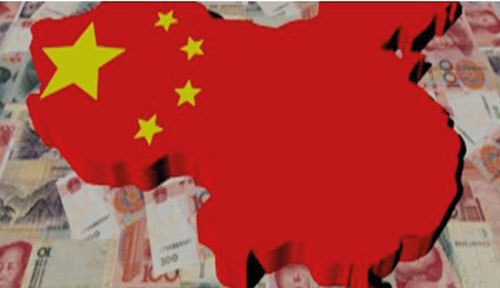Numerous reports of World Bank and IMF have clearly indicated that the Chinese macro-economy has been a driving force for further development and recovery from the global crisis since 2008, said Mehmood Ul Hassan Khan, Executive Director of the Center for South Asia & International Studies (CSAIS) in a report published by Gwadar Pro on Wednesday.
Moreover, its multidimensional role in the further development, recovery, stability and sustainability of the regional as well as global economies has been enhanced which is commendable.
In this connection, despite global gloomy & doomy economic conditions, financial crunch, widening energy & food crises, imposition of socio-economic sanctions against China by the US and punitive legislations against China and developing countries, China is now playing an increasingly important role in driving and consolidating global economic recovery which vividly reflects its increasing role in the global economy and governance alike during the last decade.
The most recently published report of the National Bureau of Statistics (NBS)upholds that China accounted for 18.5 percent of the global economy in 2021, 7.2 percent points higher than in 2012, remaining the world’s second-largest economy. Moreover, its GDP exceeded RMB 114 trillion (about $18.1 trillion) in 2021, registering an increase of 8.1 percent over the previous years.
The average growth rate of China’s GDP reached 6.6 percent from 2013 to 2021, higher than the world’s average growth rate of 2.6 percent and that of the developing economies at 3.7 percent. China’s per-capita GDP reached 80,976 yuan ($11,684) in 2021, up 69.7 percent from 2012 which rightly showcases its upward socio-economic prosperity and immense social development in the country catering to the basic needs and skills of its population.
NBS further reveals that China’s per-capita disposable income reached 35,128 yuan ($4,903) in 2021, up 18,618 yuan ($2,599) from 2012. Moreover, from 2013 to late 2020, around 100 million poor rural residents were successfully lifted from absolute poverty.
The total value of China’s trade in goods and services reached $6.9 trillion in 2021 the report says. Imports and exports were both up from the previous year. Chinese companies have actively invested aboard. According to Sheng Qiuping, assistant minister of commerce, China, in the past eight years since the BRI was introduced, the overseas economic and trade cooperation zones set up by Chinese enterprises have paid a total of $6.6 billion in taxes and fees to host countries and created 392,000 local jobs.
According to the Ministry of Commerce, China’s emerging cross-border e-commerce platforms and logistics have promoted the introduction of global products into the Chinese market and sent domestic products and services abroad. According to customs statistics from China, China’s cross-border e-commerce imports and exports have increased by nearly 10 times in the past five years, reaching 1.92 trillion yuan ($269 billion) in 2021, up 18.6 percent year on year. It means that China is the pioneer of e-commerce which has further strengthened global economic integration.
China’s average contribution to global economic growth exceeded 30 percent during 2013-2021, ranking first across the world, NBS data showed. Over the past decade, China has seen a better economic structure and more coordinated growth.
On the green development front, China’s renewable energy facilities and services have become a global leader during the last ten years. Now its cities are enjoying fruits of green energy in terms of qualitative air and environment. In 2021, the share of coal in China’s total energy consumption decreased from 72.4 percent in 2005 to 56 percent, and the share of non-fossil energy consumption increased to about 16.6 percent, which shows Chinese strong pledges towards climate change threats.
China’s accumulative afforestation area amounted to approximately 59.44 million hectares from 2013 to 2021. It is also the biggest wind turbine manufacturer and a major supplier of photovoltaic components in the world which demonstrates its constant persuasions towards green future and green technologies.
To conclude, China has successfully transformed itself from a poor agrarian country to a global economic titan today. During the last ten years, it has built technological giants, built modern infrastructure, brought free-market forces into its national economy, and become an integral part of the global supply chain.
China has been the world’s major growth engine. A report published the World Bank upholds that China’s share of global GDP has been sustainable i.e. 16.74%, 17.26%, 18.24%, 18.62 % respectively during 2018-2021 which is indeed a great achievement and recognition at international level for CCP, the report added.










